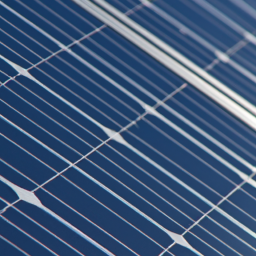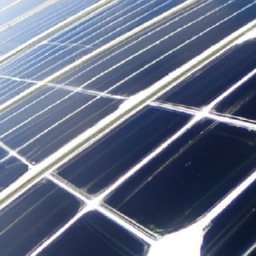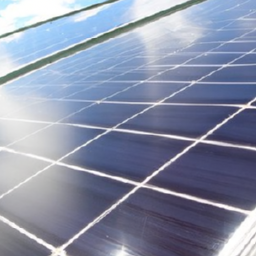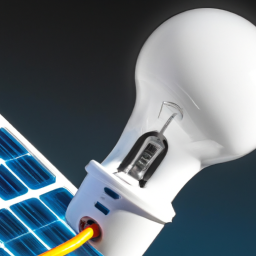Have you ever wondered if solar generators are good for the environment? With all the talk about renewable energy and reducing our carbon footprint, it’s natural to have questions about the impact of different energy sources. In this article, we will delve into the topic and explore whether solar generators are truly eco-friendly. So, if you’re curious to know more about the environmental benefits of solar power, read on!
Solar generators have gained popularity in recent years as a clean and sustainable alternative to traditional fuel-based generators. By harnessing the power of the sun, solar generators produce electricity without emitting any harmful pollutants or greenhouse gases. This means that they do not contribute to air pollution or climate change. In addition, solar generators do not require any external fuel source, saving valuable natural resources and reducing our dependence on fossil fuels. But are they truly good for the environment? Well, we’ll find out more in the rest of the article!
What is a solar generator?
A solar generator is a device that uses solar energy to produce electricity. It is a clean and renewable source of energy that can be used to power various appliances and devices. Unlike traditional generators that rely on fossil fuels, solar generators use photovoltaic panels to convert sunlight into electrical energy.
How does it work?
Solar generators work by harnessing the power of the sun through photovoltaic panels. These panels contain solar cells made from semiconducting materials, such as silicon. When sunlight hits these cells, it excites the electrons within, creating an electric current. This current is then captured and stored in a battery for later use.
To maximize the efficiency of the solar generator, it is important to place the panels in an area where they can receive direct sunlight for the majority of the day. The more sunlight the panels receive, the more energy they can convert, resulting in a greater power output.
Types of solar generators
There are several types of solar generators available on the market, each with its own unique features and capabilities. Here are three common types:
-
Portable solar generators: These generators are lightweight and compact, making them ideal for outdoor activities such as camping or hiking. They typically come with built-in batteries and inverters, allowing you to charge and power small electronic devices on the go.
-
Residential solar generators: These generators are designed to provide power to homes and residential buildings. They consist of larger solar panels installed on rooftops or in open areas, connected to an inverter and battery system. Residential solar generators can help homeowners reduce their reliance on the grid and save on electricity costs.
-
Solar generators for off-grid living: These generators are designed for individuals or communities living in remote areas without access to the power grid. They are often combined with other renewable energy sources, such as wind or hydro power, to ensure a constant and reliable energy supply.
Benefits of solar generators
Solar generators offer several benefits for both the environment and the user. Let’s take a look at some of the key advantages:
Clean and renewable energy
One of the main benefits of solar generators is that they produce clean and renewable energy. Unlike traditional generators that burn fossil fuels and emit harmful pollutants into the atmosphere, solar generators generate electricity without any emissions. This helps to reduce air pollution and combat climate change.
Reduces greenhouse gas emissions
By using solar generators, you can significantly reduce your carbon footprint. Since they don’t rely on fossil fuels, solar generators don’t release greenhouse gases such as carbon dioxide into the atmosphere. This makes them an environmentally friendly alternative to traditional generators and helps to mitigate the effects of climate change.
Minimal environmental impact
Solar generators have a minimal impact on the environment compared to traditional generators. They don’t require any fuel or produce any waste during operation, resulting in a much smaller ecological footprint. Additionally, the production and installation of solar panels have become more sustainable over the years, further minimizing the environmental impact.
Decreases reliance on fossil fuels
Another advantage of solar generators is that they decrease our dependency on fossil fuels. As fossil fuels become increasingly scarce and expensive, solar energy provides a viable alternative. By investing in solar generators, you can reduce your dependence on non-renewable energy sources and contribute to a more sustainable future.
Comparison with traditional generators
To understand the environmental benefits of solar generators, let’s compare them to traditional generators in terms of emissions, noise pollution, and fuel consumption.
Emissions and pollution
Traditional generators typically burn fossil fuels, producing emissions that are harmful to both human health and the environment. These emissions include carbon dioxide, nitrogen oxides, and particulate matter, which contribute to air pollution and climate change. In contrast, solar generators produce no emissions during operation, making them a much cleaner and healthier alternative.
Noise pollution
Traditional generators are known for their loud noise levels, which can be disruptive and bothersome, especially in residential areas. Solar generators, on the other hand, operate silently since they don’t have any moving parts. This makes them more pleasant to use and reduces noise pollution, particularly in quiet environments or during outdoor activities.
Fuel consumption
Traditional generators consume fuel, such as gasoline or diesel, to produce electricity. This not only contributes to air pollution but also requires a constant supply of fuel, which can be expensive and inconvenient. Solar generators, however, use sunlight as their primary source of energy. As long as the sun is shining, you have a free and abundant source of power, reducing the need for fuel and associated costs.
Positive environmental effects of solar generators
In addition to the direct benefits mentioned above, solar generators also have positive environmental effects that extend beyond just electricity generation. Let’s explore some of these effects:
Air quality improvement
By reducing our reliance on fossil fuels, solar generators help to improve air quality. The burning of fossil fuels releases pollutants into the atmosphere, contributing to smog, acid rain, and respiratory diseases. Switching to solar generators reduces the emission of harmful gases and promotes cleaner air, benefiting both human health and the environment.
Water conservation
Traditional generators often require large amounts of water for cooling and steam production. This can put a strain on local water supplies, particularly in arid regions. Solar generators, however, don’t require any water for their operation, making them a more water-efficient option. This is especially important in areas where water scarcity is a concern.
Wildlife preservation
The construction and operation of traditional generators can have negative impacts on local wildlife habitats. Solar generators, on the other hand, have a much smaller footprint and cause minimal disturbance to the surrounding environment. By choosing solar energy, we can help preserve natural habitats and protect wildlife species from the negative effects of industrial development.
Challenges and limitations
While solar generators offer many benefits, there are also challenges and limitations to consider. Here are a few key factors to keep in mind:
Dependent on sunlight availability
The efficiency of solar generators depends on the availability of sunlight. In areas with frequent cloud cover or limited sunlight, the power output of solar generators may be reduced. This can impact the reliability and effectiveness of solar energy as a primary source of electricity. However, advancements in solar technology and energy storage are helping to mitigate this limitation.
Storage limitations
Solar generators rely on batteries to store excess energy for use during periods of low sunlight or at night. The capacity of these batteries determines how much energy can be stored and used when needed. Depending on the size of the solar generator and the power requirements, the battery capacity may limit the duration and intensity of electrical usage. It is important to consider your energy needs and choose a solar generator with an appropriate battery capacity.
Initial cost
The initial cost of installing a solar generator can be high compared to traditional generators. This is primarily due to the cost of solar panels and related equipment. However, it is important to note that the long-term cost of solar energy is typically much lower than that of fossil fuel-based energy. Over time, solar generators can help you save money on electricity bills and provide a return on investment.
Waste management and recycling
Proper waste management and recycling of solar generator components are crucial to ensure their environmental sustainability. Here are two important aspects to consider:
End-of-life management
Solar panels have a lifespan of around 25 to 30 years. At the end of their life, it is important to dispose of them properly to prevent any harm to the environment. Many countries have established regulations and guidelines for the responsible handling and disposal of solar panels. Recycling programs for end-of-life solar panels are becoming more prevalent, allowing valuable materials to be recovered and reused.
Battery recycling
Batteries used in solar generators also require proper recycling at the end of their life to prevent any leakage or contamination of the environment. Many battery manufacturers and recycling facilities offer programs for the collection and recycling of used batteries. By supporting these initiatives, we can minimize the environmental impact of solar generators and promote a circular economy.
Sustainable disposal practices
Apart from solar panels and batteries, other components of solar generators, such as inverters and wiring, also need to be disposed of responsibly. Sustainable disposal practices, such as recycling and proper waste management, ensure that these components don’t end up in landfills or harm the environment. It is important to work with certified and responsible disposal companies when decommissioning or upgrading your solar generator system.
Government incentives and policies
To promote the adoption of solar generators and other renewable energy sources, many governments offer incentives and implement policies to support their use. Here are some examples:
Financial incentives
Governments may provide financial incentives such as tax credits, grants, or subsidies to individuals or businesses that invest in solar generators. These incentives can help offset the initial installation costs and make solar energy more affordable and accessible.
Renewable energy targets
Many countries have set renewable energy targets as part of their efforts to reduce greenhouse gas emissions and combat climate change. These targets often include specific goals for solar energy generation and encourage the adoption of solar generators on a larger scale.
Net metering
Net metering policies allow solar generator owners to sell excess electricity back to the grid. This means that when your solar generator produces more energy than you use, it can be fed back into the grid, and you receive credits or compensation for the excess electricity. Net metering policies incentivize the use of solar generators and make them a more economically viable option.
Impact on local communities
The adoption of solar generators can have positive impacts on local communities. Here are two key areas where solar generators can make a difference:
Job creation
The installation, maintenance, and operation of solar generator systems require skilled labor. By investing in solar energy projects, local communities can create new job opportunities and stimulate economic growth. From solar panel manufacturing to installation and maintenance services, the solar industry offers a wide range of employment opportunities.
Energy independence
Solar generators provide a decentralized and independent source of electricity. They allow communities to generate their own power, reducing their reliance on centralized power grids. This promotes energy independence and improves the resilience of local communities during power outages or emergencies.
Case studies
To highlight the positive impacts of solar generators, let’s look at two case studies:
Successful implementation in remote areas
In many remote and off-grid communities, access to electricity is limited or non-existent. Solar generators have been successfully implemented in such areas to provide reliable and sustainable power. For example, in the Himalayan region of Ladakh in India, solar generators have enabled remote villages to have electricity for the first time, improving the quality of life and promoting development.
Integration into existing grid systems
Solar generators can also be integrated into existing power grid systems to supplement traditional energy sources. In Germany, for instance, solar generators have been installed on rooftops and open spaces to generate electricity that feeds into the national grid. This not only reduces the reliance on fossil fuels but also contributes to the overall stability and sustainability of the grid.
Conclusion
Solar generators offer significant environmental benefits and are a viable alternative to traditional generators. With their ability to produce clean and renewable energy, solar generators contribute to air quality improvement, water conservation, and wildlife preservation. Although there are challenges and limitations to consider, advancements in solar technology, government incentives, and supportive policies are making solar generators more affordable and accessible.
By choosing solar generators, you can reduce your carbon footprint, decrease your reliance on fossil fuels, and contribute to a more sustainable future. Whether you are looking to power your home, go off-grid, or support local communities, solar generators provide a reliable and environmentally friendly solution. So, consider investing in a solar generator and harness the power of the sun to benefit both yourself and the environment.




